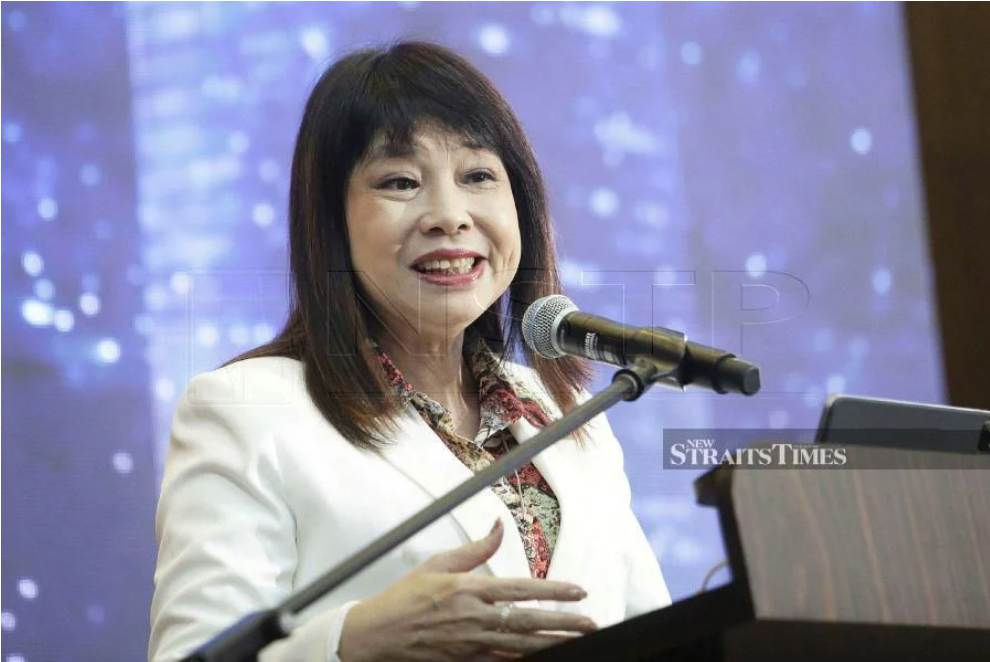PUTRAJAYA: Malaysia’s recent cashless and cheque-free campaign, called Cashless Boleh 4.0, has generated 138.82 million transactions, covering 86 per cent of all 20 participating government agencies throughout its one-year implementation.
Deputy Finance Minister Lim Hui Ying said for Cashless Boleh 5.0, government agencies’ participation has increased to over 80 agencies this year, marking a significant leap in strengthening the country’s cashless payment ecosystem.
The campaign, she said, is a continuation of the collaborative programme between the Ministry of Finance (MoF) and Payment Networks Sdn Bhd (PayNet), which has been ongoing since 2019.
The first and second Cashless Boleh campaigns involved public participation to encourage the use of e-payments for services provided by the government.
“The Cashless Boleh campaign is an initiative with a significant impact on advancing Malaysia’s financial digitalisation transformation. It also aims to upgrade the nation’s digital infrastructure and achieve excellence at the international level.
“By enhancing the security and efficiency of financial transactions, the effectiveness of this campaign enables the modernisation of the public sector, providing easier, more transparent and systematic government services to all Malaysians,” she said.
Lim said this at the prize-giving ceremony for the Cashless Payment Campaign – Cashless Boleh 4.0 and the launch of Cashless Boleh 5.0 here today.
Cashless Boleh 4.0 ran from Dec 1, 2023, to Nov 30, 2024 with participation from 20 federal government agencies and statutory bodies.
In addition, eight state governments participated in the campaign, successfully recording 46.37 million e-payments, representing 92 per cent of the total 50.25 million transactions.
The Cashless Boleh campaign is an annual collaboration between MoF and PayNet to accelerate the adoption of digital payments in Malaysia’s public sector.
This is by encouraging citizens to use electronic payment methods such as MyDebit, FPX, JomPAY, DirectDebit and DuitNow QR when dealing with government agencies.
According to Lim, the development of digital payments in the financial sector aligns with the government’s digital transformation as outlined in the Malaysia Digital Economy Framework, also known as the MyDigital Economy Blueprint.
MyDigital represents the government’s aspiration to transform Malaysia into a high-income nation driven by digitalisation and a regional leader in the digital economy.
“Therefore, the implementation of cashless payments is a necessity in today’s era to enhance the security, efficiency, and accessibility of government services.
“This, in turn, facilitates and assists citizens in conducting faster and safer transactions, both domestically and globally.
“With this cashless payment system, we can reduce cash usage, speed up transaction processes, enhance accountability and integrity, and ensure the strengthening of financial system security.
“This approach reflects the Madani economic policy, which prioritises technological advancement and openness,” she noted.
PayNet chairman Datuk Izzaddin Idris said as a leader in the country’s payment digitalisation agenda, PayNet is committed to empowering the digital economy through strategic initiatives, aimed at making digital payments easier, safer and accessible to all.
He added that the Cashless Boleh campaign is an initiative through which the company aims to strengthen the cashless payment infrastructure across the country, particularly within the government ecosystem.
“This aligns with the overall objective of encouraging digital transactions, which not only enhance efficiency and transparency but also serve as a catalyst for the transformation towards a progressive cashless society,” he said.
Source : New Straits Times


